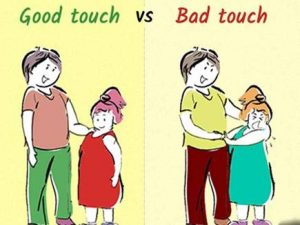मित्रद्रोही कृतघ्नश्च यश्च विश्वासघातकः ।
ते नरा नरकं यान्ति यावच्चन्द्रदिवाकरौ ॥
Meaning
One who is known for distrust; who shows no gratitude for the rendered favours and who conspires – people like them are sure to conquer hell. This rule prevails until the sun and moon exists. – Panchatantra
The value for belief, fidelity and trustworthiness are always glorified since time immemorial. Hope is what the whole world is living on. We go to sleep everyday with a hope of a sunrise which wakes us up and gets to see our loved ones. What if one day the sun fails to rise, or what if the earth stops its revolution and we never get to see the bright daylight? Our hope is shattered when something doesn’t work the way how we trusted them to turn out.
Trust – sounds like a very small word but has a lot to do with rational growth of a child. It shapes ones emotional stability to an extent that outcome of which is what is described as “Sana in corpore sano” in Latin which means – Sound mind in a sound body.

Trust is what makes a baby laugh when we raise the child up in the air. The same trust is the one which makes a teenager confess that he missed his classes to go watch a movie with his friends to his mother, with a promise that this wouldn’t happen every other day. Why is trust so important in a man’s life? Fidelity over thinking takes a long time to develop as it can just be imbibed gradually into a person’s mind that ‘yes, this person is the one whom I can believe, regardless of any situation’.
Children are susceptible to some trust issues due to which they tend to suffer either in minor circumstances like parental control and friends’ association or sometimes in a big picture which are not so less serious like child abuse, child trafficking etc. The adults with minimal humanitarian values and abundant satanic reflections tend to harm the naivety in the child.

Building a reliable connection with a child is as important as watering a plant for its constant growth.
Why?
- Being true to oneself and others can invent a new human being who grows up to be a responsible adult who preserves an immense long term healthy relationship with parents. According to Danielle Kassow – “The parent-child relationship is the first social relationship.”
- A child who is rewarded with an environment that promoted trust and loyalty would definitely make him/her a dependable adult who would grow up to be a non- believer of infidelity or emotional betrayal.
- It would be an advantage for a children if they could differentiate between the safe and the unsafe people who would impend to harm them. This not just includes physical abuse but also the intentional embarrassment or any kind of emotional stress which would come with an unworthy behaviour. These are the times when a child requires a “Trustworthy” person…be it a parent, a teacher or any other person whom the child considers harmless or “the one whom I can talk to” kind of a dependable adult.

There are many ways which can ensure a relationship packed with trust.
How?
- Being a good listener: Encourage your kids to speak. Let them be expressive enough for you to know everything about them. When they are putting their thoughts in front of you, be attentive and act diligently without constant judging. Do not be negligible while your child is either reciting a rhyme she learnt it in the school or when your son explains a funny incident about how his friend spilled water on his shirt while gulping some. Things important for them might appear silly for us. But spending some time laughing with your youngster for no definite reason in a stress therapy by itself.
- Watch yourself: Children often learn things either by acquired learning or imitating those who for them is deemed a reliable source – The “Adults” in the house. White lies like answering the caller over the phone that her father is not at home when he is right there sitting on the couch can make your daughter think twice as your thoughts are deceptive and contradictory. Do not make your child translate your thoughts into a conclusion that – ‘promises are made to break’ or ‘it is OK to not to tell the truth always’. A strong belief that ‘my parent/teacher actually does what he/she says’ is the greatest accomplishment when it’s winning the child’s trust.
- Flexible vs. Reasonable: When your child pleads to watch his favorite cartoon for the last 2 minutes, LET IT GO! Yes, studies show that letting your child indulge in vigilant limits should cater to their consideration that the parents are really concerned about their preferences. This would develop the kid’s fondness over their parent all the more and they will definitely consider their parents as the people worth looking up to.
- Activities together: Engaging in simple crafts, letting your child use Scissors and paper-cutter under your invigilation also evokes their trust in you. They would involuntarily judge you as ‘a person who would never try to get me in to trouble’. Take them outdoors to play in a swing and doing wall climbing activities together can lay a strong foundation of trust.

Boast their confidence to let them certify you by confirming to their tender minds that it is YOU who is that “GO-TO” person they can rely on. Good luck!


Comments are closed.